
RCB For Water Stewardship In Rural Maharashtra
PROMOTING WATER STEWARDSHIP FOR SUSTAINABLE, EFFICIENT, AND JUDICIOUS WATERUSE IN DROUGHT PRONE REGIONS OF MAHARASHTRA
A Progress Report (April 2019-March 2020)
The goal is to increase the capacity of rural communities to address water related issues in a climate change context
by promoting its sustainable, equitable and efficient use.
The project is implemented in 10 villages in Jalna district of Marathwada, drought prone region of Maharashtra. The
project is implemented in two blocks, Ambad and Bholardan.
The overall plan comprises of three broad components:
(1) techniques to address water demand and supply side issues;
(2) promote crop production and better crop yield; and
(3) address institutional/ governance related aspects based on ground knowledge and information.
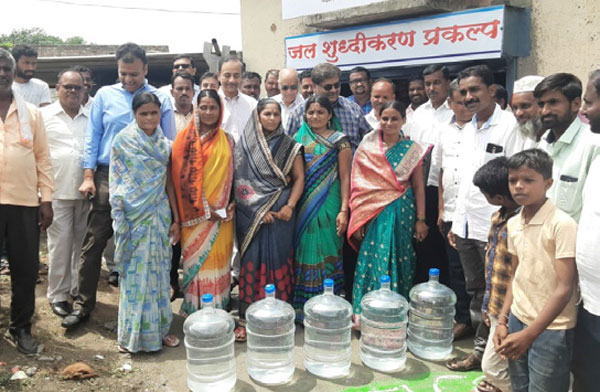
WATER FILTER UNITS
Water filters installed in 7 project villages viz., Banegaon, Thigalkheda, Kotha Jahagir, Kolegaon at (Bhokardan block) and Khedgaon, Nihalsingwadi and Pimparkhed (Ambad block) with Eureka Forbes. A member of Village Water Management Team (VWMT) in each village was trained to operate the filter machine and maintenance along-with recharge of water ATM.
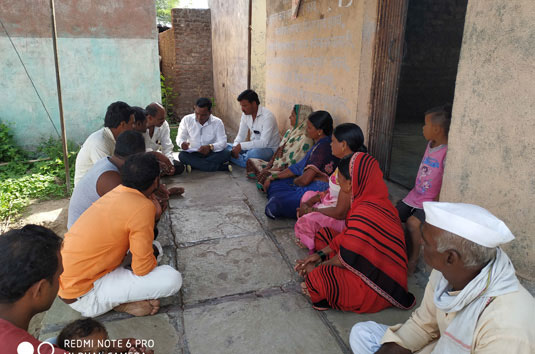
FORMATION OF VWMT
The VWMTs are formed in consultation of respective village panchayats. An important stakeholder body in the Water Stewardship Initiative, the VWMT is responsible for planning and executing project activities in the village and getting people involved, with active support of Jal Sevaks. VWMT is a gender-inclusive body of 8 to 15 village key leaders who are representatives of big irrigating farmers, small and rainfed farmers, village institutions such as
gram panchayat, watershed committees, women and the landless.
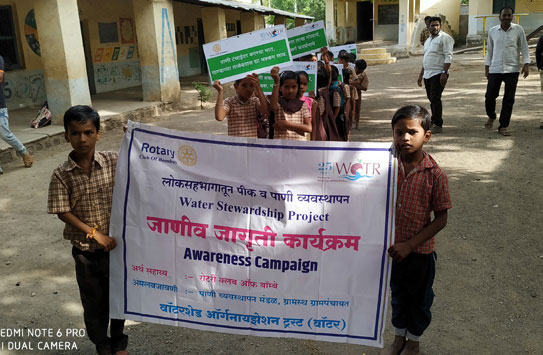
AWARENESS CAMPAIGNS
Awareness has been and will be an important aspect in the program. Various techniques have been adopted to inform the community such as: two-day project awareness campaigns, public meetings, Kalapathak (street plays), essay competitions and installation of slogan boards.
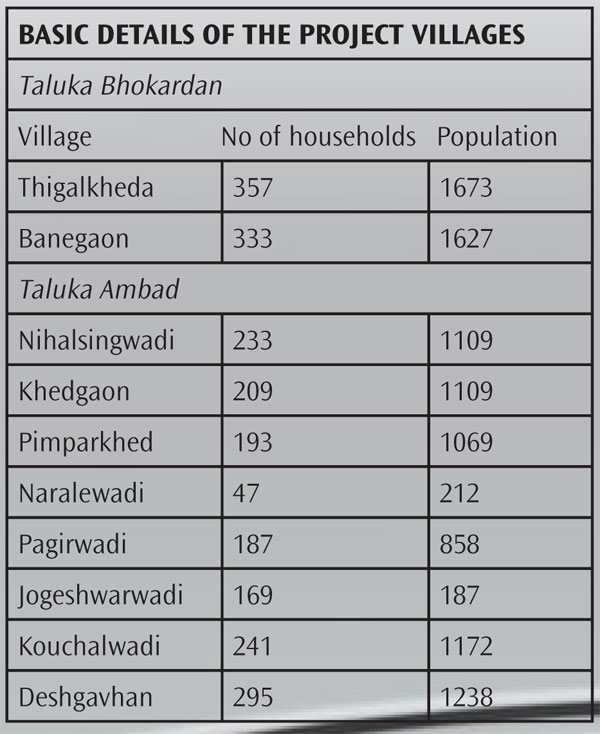
SELECTION AND CAPACITYBUILDING OF JAL SEVAKS
Rural youths interested in village development identified and trained to mobilize, sensitise, and facilitate the VWMT and water stewards to implement project components and processes. These youths are known as Jal Sevaks and their skills and capacities will be developed on water management issues and implementing project components in the villages.
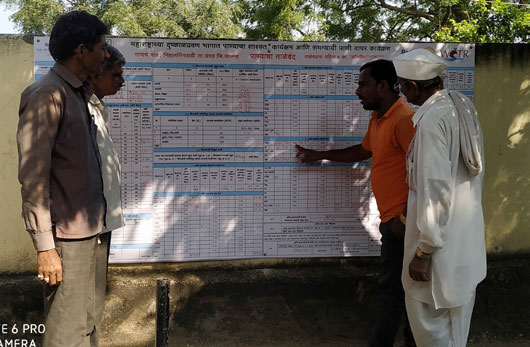
WATER BUDGETING (WB) PROCESSES
A water budget for kharif and rabi season has been done using data from baseline surveys and secondary data from government sources (rainfall). The data includes area, rainfall, cropping pattern, water harvesting potential, population (both human and animals) of the village. This budget helped villagers plan water use and crops during coming rabi and summer season.
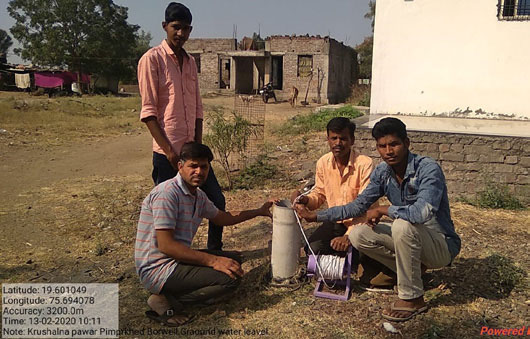
DATA MONITORING (RAINFALL AND GROUNDWATER)
Two units of simple and manual rain-gauges have been placed in each project village. The purpose is to trace and measure rainfall variability across the village area and arrive at more accurate value of locale-specific rainfall to calculate the water budget. Groundwater level monitoring is done silimarly to give an idea of aquifer saturation, changes in groundwater levels, etc.
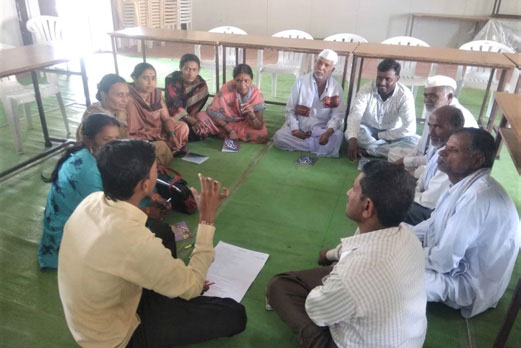
STAKEHOLDER ENGAGEMENT WORKSHOPS
VWMT members are periodically invited to understand, inform, debate and discuss water management-related issues. This space become the opportunity for capacity building and attitudinal changes of VWMT members on water management as
well as of all villagers as when they return in their village, they mobilise other villagers for the same. Youth groups of the village were made aware of this programme being implemented in their village.
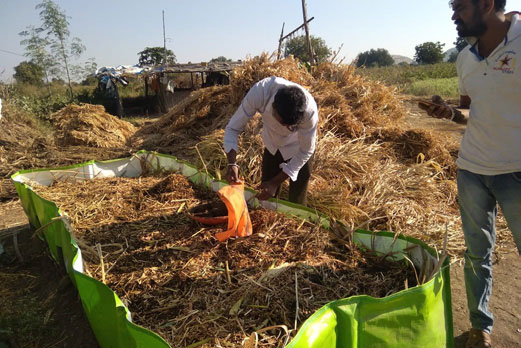
PROMOTION OF VERMICOMPOSTING TETRA BEDS:
Reducing the use of chemical fertilizer while promoting organic fertilizers is one of the methods of efficient use of water. Therefore, promoting organic manure and formulations has been one of the focus of the program. A total of 41 tetra vermin beds were distributed in the current reporting period. Local contribution was made mandatory for sustenance and expansion of the activity with ownership building amongst the villagers.
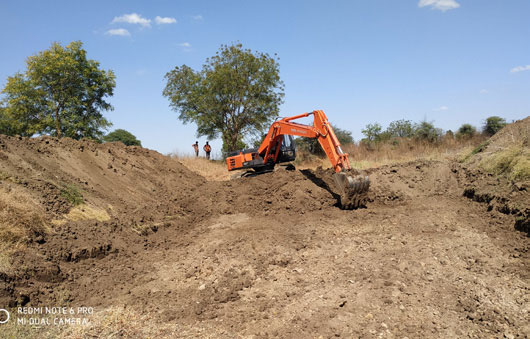
DESILTING THREE STREAMS:
Enhancing the water harvesting potential of the village is one of the components of water management. Desilting the streams where the storage has reduced due to silt deposition was undertaken. The sites were selected after consulting the VWMT of the village. The WOTR team ensured that the sites selected should create maximum impact and therefore survey of the streams in the village were doe prior selection.
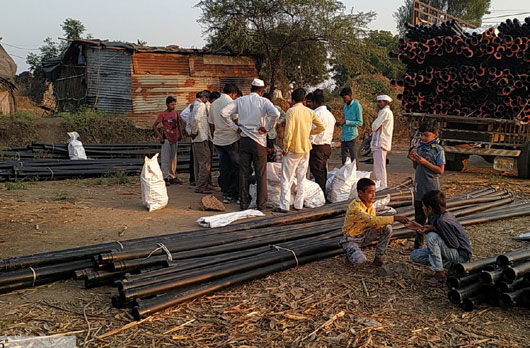
PROMOTION OF MICROIRRIGATION SYSTEMS:
Sprinkler sets were promoted and selection process for beneficiary identification was defined earlier. The existing VWMT had the complete right to choose the beneficiary through defined clauses of selection. Around 25 per cent of the required water is saved through the application which would further contribute to availability of water for drinking purposes during summer season. Approximately 0.48 cr. litre of water was saved through 10 sprinkler sets in an area of 4.1 hectare in the late rabi and summer season.
During this financial year
- As per the sanctioned plan, all the activities have been undertaken.
- The physical and financial achievement for the year 2019-2020 is 98 per cent and 81 per cent respectively.
- The unspent budget of awareness campaigns will be spent during the next year as a part of consistent awareness.
- Making local contribution mandatory in the activities of promoting drip/sprinkler irrigation and organic compost has helped reach out to more households. For instance, an additional six sprinkler sets were promoted through the available budget.
